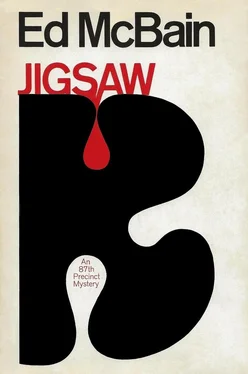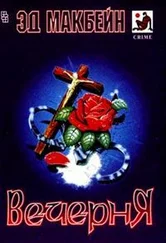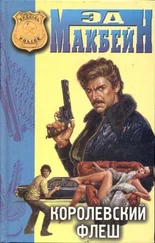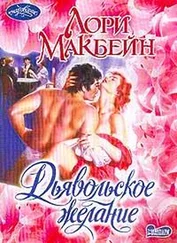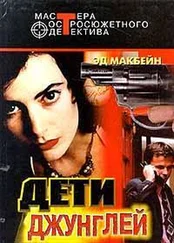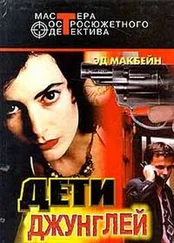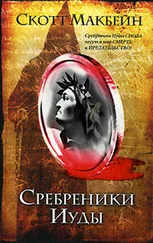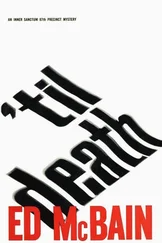This is for Helen and Gene Federico
The city in these pages is imaginary.
The people, the places are all fictitious.
Only the police routine is based on established investigatory technique.
Detective Arthur Brown did not like being called black.
This might have had something to do with his name, which was Brown. Or his color, which was also brown. Or it might have had something to do with the fact that when he was but a mere strip of a boy coming along in this fair city, the word “black” was usually linked alliteratively with the word “bastard.” He was now thirty-four years old and somewhat old-fashioned, he supposed, but he still considered the word derogatory, no matter how many civil rights leaders endorsed it. Brown didn’t need to seek identity in his color or in his soul. He searched for it in himself as a man, and usually found it there with ease.
He was six feet four inches tall, and he weighed 220 pounds in his undershorts. He had the huge frame and powerful muscles of a heavyweight fighter, a square clean look emphasized by the way he wore his hair, clipped close, clinging to his skull like a soft black cap, a style he had favored even before it became fashionable to look “natural.” His eyes were brown, his nostrils were large, he had thick lips and thicker hands, and he wore a .38 Smith & Wesson in a shoulder holster under his jacket.
The two men lying on the floor at his feet were white. And dead.
One of them was wearing black shoes, blue socks, dark blue trousers, a pale blue shirt open at the throat, a tan poplin zippered jacket, a gold Star-of-David on a slender gold chain around his neck, and two bullet holes in his chest. The other one was dressed more elegantly — brown shoes, socks and trousers, white shirt, green tie, houndstooth-check sports jacket. The broken blade of a switch knife was barely visible in his throat, just below the Adam’s apple. A Luger was on the floor near his open right hand.
The apartment was a shambles.
It was not a great apartment to begin with; Brown had certainly seen better apartments, even in the ghetto where he had spent the first twenty-two years of his life. This one was on the third floor of a Culver Avenue tenement, two rooms and a bathroom, rear exposure, meaning that it faced on a backyard with clotheslines flapping Wednesday’s wash. It was now close to 10:00 P.M., four minutes after the building’s landlady had stopped the cop on the beat to say she had heard shots upstairs, six minutes after the patrolman had forced the door, found the stiffs, and called the station house. Brown, who had been catching, took the squeal.
The Homicide cops had not yet arrived, which was just as well. Brown could never understand the department regulation that made it mandatory for Homicide to check in on every damn murder committed in this city, even though the case was invariably assigned to the precinct answering the call. He found most Homicide cops grisly and humorless. His wife, Caroline, was fond of telling him that he himself was not exactly a very comical fellow, but Brown assumed that was merely a case of the prophet going unappreciated in his native land. In fact, he thought he was hilarious at times. As now, for example, when he turned to the police photographer and said, “I wonder who did the interior decorating here.” The police photographer apparently shared Caroline Brown’s opinion. Without cracking a smile, he did his little dance around the two corpses, snapping, twisting for another angle, snapping again, shifting now to this side of the dead men, now to the other, while Brown waited for his laugh.
“I said...” Brown said.
“I heard you, Artie,” the photographer said, and clicked his camera again.
“This is certainly not the Taj Mahal,” Brown said.
“Hardly anything is,” the photographer answered.
“What are you so grumpy about?” Brown asked.
“Me? Grumpy? Who’s grumpy?”
“Nobody,” Brown said. He glanced at the corpses again, and then walked to the far side of the room, where two windows overlooked the backyard. One of the windows was wide open. Brown checked the latch on it, and saw immediately that it had been forced. Okay, he thought, that’s how one of them got in. I wonder which one. And I also wonder why. What did he expect to steal in this dump?
Brown leaned over the windowsill. There was nothing but an empty milk carton, a crumpled wad of waxed paper, and a flowerpot on the fire escape outside. The flowerpot had a dead plant in it. Brown looked down into the yard below. A woman was dumping her garbage into one of the cans adjacent to the alley wall. She accidentally dropped the lid of the can, clearly and resoundingly said, “Oh, shit!” and stooped to retrieve it. Brown turned away from the window.
Monoghan and Monroe, the detectives from Homicide, were just coming through the doorway. They were dressed almost identically, both wearing blue serge confirmation suits, brown shoes, and gray fedoras. Monroe was wearing a maroon knit tie. Monoghan wore a yellow silk tie. Their shields were pinned to the breast pockets of their suit jackets. Monroe had recently begun growing a mustache, and the sparse collection of hairs over his lip seemed to embarrass him. He kept blowing his nose into his handkerchief, even though he didn’t have a cold, as though trying to hide his unsightly brush behind the white cotton square. Monoghan seemed even more embarrassed by the mustache than Monroe did. It seemed to him that after fifteen years of working together with a man, the man should not suddenly start growing a mustache one morning without first consulting his partner. Monoghan hated Monroe’s mustache. He considered it unaesthetic. It embarrassed him. It offended his eye. And because it offended his eye, he constantly stared at it. And the more often he stared at it, the more often Monroe took out his handkerchief and blew his nose, hiding the mustache.
“Well, well, what have we got here?” Monroe said, blowing his nose. “Hello, Brown.”
“Hello, Brown,” Monoghan said.
“Now this is what I call a thorough job,” Monroe said, pocketing his handkerchief. “Whoever went through this place was an expert.”
“A professional,” Monoghan said.
“It almost looks like the police shook it down.”
“Or the firemen,” Monoghan said, and looked at his partner’s mustache. Monroe took out his handkerchief again.
“Must have wanted something pretty bad,” he said, and blew his nose.
“What could anybody want in this joint?” Monoghan asked. “You know what you find in a joint like this?”
“What?” Brown asked.
“Cockroaches,” Monoghan said.
“Bedbugs,” Monroe added.
“Cockroaches and bedbugs,” Monoghan summarized.
Monroe put away his handkerchief.
“Look at this joint,” Monoghan said, and shook his head.
Brown looked at the joint. The bed had been stripped, the mattress slashed on both sides, cotton batting strewn all over the floor. The same thorough job had been done on the bed pillows and on the seat cushion, arms, and back of the single easy chair in the room. Fade-marks on the walls showed where several framed prints had been hanging, but the pictures had been yanked down, their backs probably examined, and then thrown carelessly onto the floor. The contents of all the dresser drawers were similarly tossed all over the room, and the drawers themselves had been pulled out of the dresser and then flung aside. The one floor lamp in the room, overturned, had had its shade removed and discarded. Through the bathroom doorway, Brown could see the open medicine cabinet, its contents thrown into the sink. The top of the toilet tank had been taken off. Even the toilet paper had been removed from its roller. In the kitchen, the refrigerator door was open, and food had been hurled haphazardly onto the floor. The one drawer in the kitchen table had been emptied onto the white enamel tabletop, utensils scattered everywhere. As Monroe had wisely commented, someone must have wanted something pretty bad.
Читать дальше
